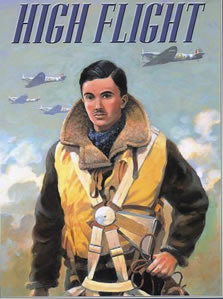De Sorbische schrijver Jurij Brězan werd geboren in Räckelwitz op 9 juni 1916. Zie ook mijn blog van 9 juni 2007 en ook mijn blog van 9 juni 2009 en ook mijn blog van 9 juni 2010.
Uit: Ohne Paß und Zoll. Aus meinem Schreiberleben
„Da erhob sich im Präsidium ein hochgewachsener, vornehm und schön anzusehender Mann etwa meines Alters, trat zum redenden Arnold Zweig und flüsterte ihm etwas zu. Zweig unterbrach sich im Unbewußten, richtete seine stark bebrillten Augen etwa in meine Richtung und sagte mit seiner hohen, schon leicht angegreisten Stimme: ‘Kollege Hermlin sagte mir soeben, unser Freund Bertolt Brecht sei eingetroffen. Wir bitten ihn, seinen Platz im Präsidium einzunehmen.’ Alle applaudierten, ich auch, nur mein Landarbeiter nicht. Er strich sich über seinen kurzgeschorenen Kopf, setzte sich langsam in Bewegung und nahm, Zweigs Aufforderung entsprechend, ‘seinen Platz im Präsidium ein’. …”
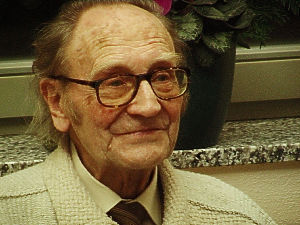
De Vlaamse dichter en schrijver Willy Roggeman werd geboren in Ninove op 9 juni 1934. Zie ook mijn blog van 9 juni 2009 en ook mijn blog van 9 juni 2010.
Uit: Cadenas
Hoeveel gaten werden in het canvas
van je lichaam gepriemd de dag dat ik
ons schaamteloos vogelvrij verklaarde?
Tijd- en pijnloos zat je kundig gespied
in het houten raam, huid van het raadsel
der lijfeigenschap die ik ons kraste,
diep onder klodders kleikleur en specie
van versteend misverstand. In algebra,
je dagelijks in het oor geschreven,
hing van pioenen het zomers woeste.
Röntgenfoto’s van mijn denken gaf ik
je te lezen tegen het schroeiend licht
van je verlangen in. De zon bedroog
bloedend de vlekken schaduw op het hart.
Steeds kleedde je het doorzichtig aan
met figuren toekomst, mathematisch.
In de gesponnen suiker van het web,
ergens spin en vlieg, verlamd door stilten
ruis op woord en teken, keken wij naast
de braakballen die droom ons toegooide.
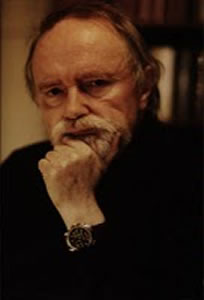
De Venezolaanse dichter, schrijver en geleerde José Antonio Ramos Sucre werd geboren op 9 juni 1890 in Cumaná. Zie ook mijn blog van 9 juni 2009 en ookmijn blog van 9 juni 2010.
Uit: Life of the Damned (Vertaald door Cedar Sigo en Sara Bilandzija)
„I suffer from illustrious decline; I love pain, beauty & cruelty, above all the last which destroys a world abandoned to evil. I always imagine further pain, live wounds.
I saved the hard parts of childhood, the withered faces of my grandparents who died in this spacious house after a long illness. I recreate the scene of their burials which I witnessed pure & shocked.
Since then, mine is a critical unholy soul living on the battleground of human & godly powers, driven by a mania of questions. This insatiable curiosity brought academic triumph then a fleeting & corrupt life upon leaving the classroom. I hate especially my fellow men who inspire a fascist word within me. I confess that in the bored days of my youth my discordant & private nature resulted in drag out fights & drew forth a wit from the loosest women who frequent buildings of danger & deviation.
Unseduced by worldly pleasures, I returned by chance to solitude, much before the end of my youth. I withdrew to my native city, removed from progress, among the dead. Since then I have not left this mansion’s shadow. Behind the house flows a thin river of ink, saved from the light by a spot of trees, torn by a furious wind, born of the driest mountain. An oxen cart passes slowly across the deserted road in front of the house, in imitation of an Etruscan country scene.“
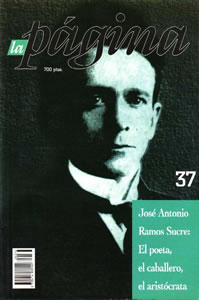
De Duitse dichter, schrijver en vertaler Rudolf Borchardt werd geboren op 9 juni 1877 in Königsberg. Zie ook mijn blog van 9 juni 2009 en ook mijn blog van 9 juni 2010.
Sonett auf sich selbst
Aus Sturm und Traum auffahrend, wo ich saß,
In einen Spiegel blickt ich heut hinein
Und wußte nicht von mir, und sah mit Pein
Das Anlitz meines Feindes aus dem Glas
Emporgesandt: von fleckiger Schatten Schein
Die Lippe überwildert, schien etwas
Dumpf hinzuknirschen zwischen Angst und Haß:
Ich sollt es sein; und möchte dies nicht sein!
Wir sind nicht, was wir sind; der Himmel, kaum
Vom Meer zu kennen, schleift mit Dunst beschwert
Und brütet Auswurf: aber gieße Traum
In deinen Becher; und mit Nordwind gärt
Die wundervolle See, und wildem Schaum,
Durch den das heilige Schiff mit Helden fährt.
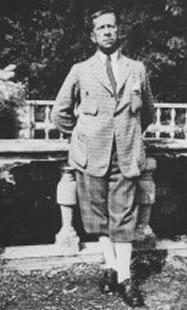
De Georgische dichter, schrijver en politicus Akaki Zereteli werd geboren op 9 juni 1840 in Schwitori. Zie ook mijn blog van 9 juni 2007 en ook mijn blog van 9 juni 2009 en ook mijn blog van 9 juni 2010.
Dawn
In pensive thought the Holy Mount
Upon the star of morn does gaze,
As o’er the valiant hero’s grave
The star sheds soft and misty rays.
Here solemn silence reigns save that
The Mtkvari breathes in murmurs light;
The Mountain listens to the stream
As it hums to the sleeping knight.
Mtatsminda to its bosom folds
That tomb illustrious and grand,
And sends St. David fervent prayers
To shield fore’et his native land
O azure sky, O emerald earth,
I hasten to you, native strand;
I come, afflicted; ease my heart
That inly bleeds, O mother-land.
I stand entranced upon the Mount
And feel once more revived and whole.
My bosom swells, and then in song
I pour the worship of my soul.
Exiled from home I wandered on
And wept to live from you apart;
I yearned for you, to you made haste
With ardent soul and eager heart.
As I drew near, your sun and moon
Bid me glad welcome from on high;
The stars seemed conscious of my joy,
And shone the brighter in the sky.
O land of beauty and of song,
Your blossoms droop and withering sigh;
Restore them once again to life,
And dry the tears that blind the eye.
O azure sky, O emerald earth,
My one and only cherished land,
For your I live, for you I’ll die,
For you I mourn, O native strand.
Protect and bless me – living, dead;
Refuse me not your sheltering care;
And when I die, of you I beg,
To heed and listen to my prayer:
Let me be buried in a grave
Upon your bosom, native strand,
With your green turf above my breast,
Beneath your skies, O mother-land.
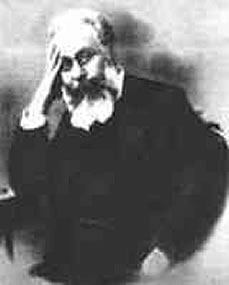
De Brits-Amerikaanse dichter en piloot John Gillespie Magee jr. werd geboren op 9 juni 1922 in Shanghai. Zie ook mijn blog van 9 juni 2007 en ook mijn blog van 9 juni 2009 en ook mijn blog van 9 juni 2010.
Per Ardua
(To those who gave their lives to England during the Battle of Britain and left such a shining example to us who follow, these lines are dedicated.)
“They that have climbed the white mists of the morning;
They that have soared, before the world’s awake,
To herald up their foeman to them, scorning
The thin dawn’s rest their weary folk might take;
Some that have left other mouths to tell the story
Of high, blue battle, quite young limbs that bled,
How they had thundered up the clouds to glory,
Or fallen to an English field stained red.
Because my faltering feet would fail I find them
Laughing beside me, steadying the hand
That seeks their deadly courage – Yet behind them
The cold light dies in that once brilliant Land ….
Do these, who help the quickened pulse run slowly,
Whose stern, remembered image cools the brow,
Till the far dawn of Victory, know only
Night’s darkness, and Valhalla’s silence now?”
